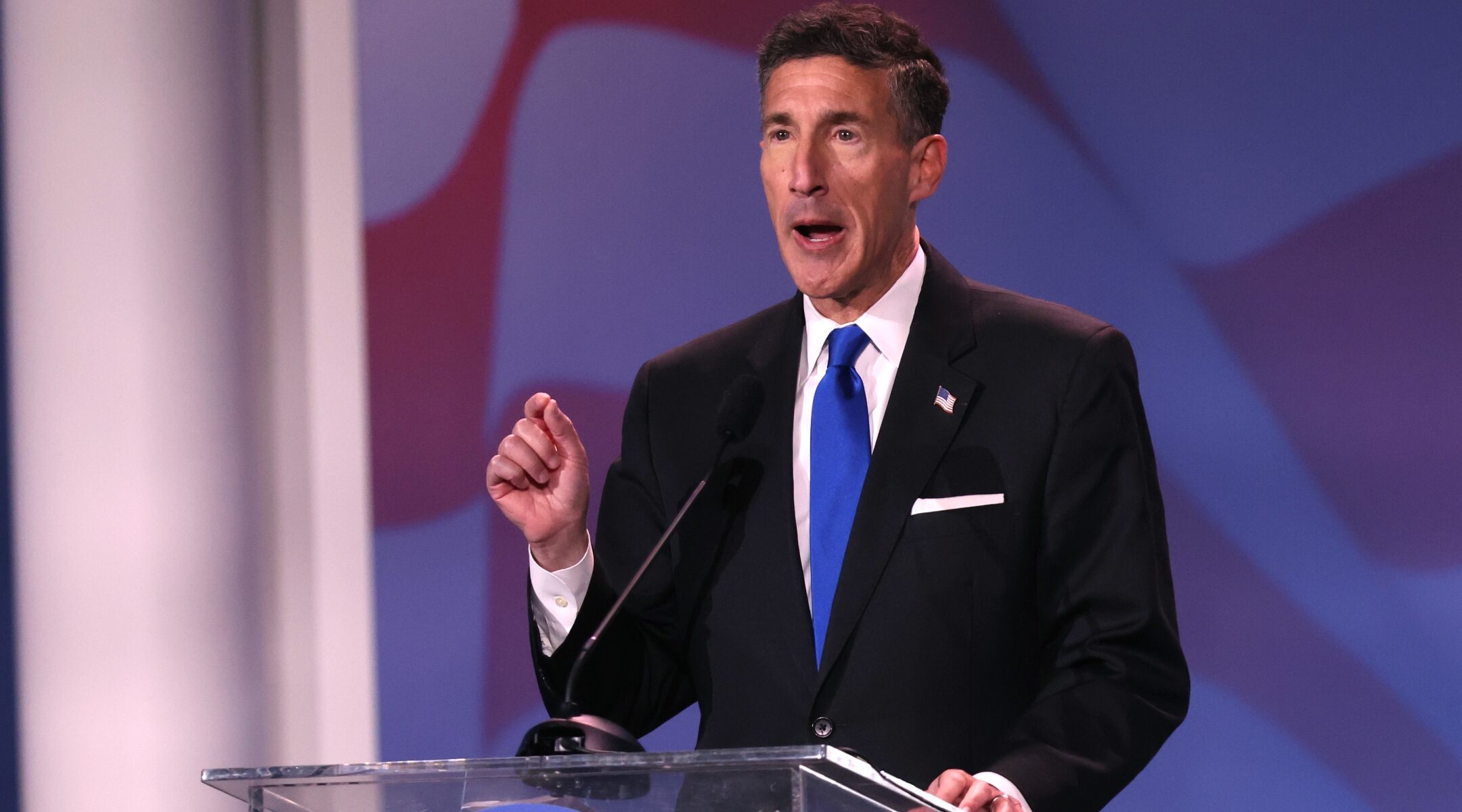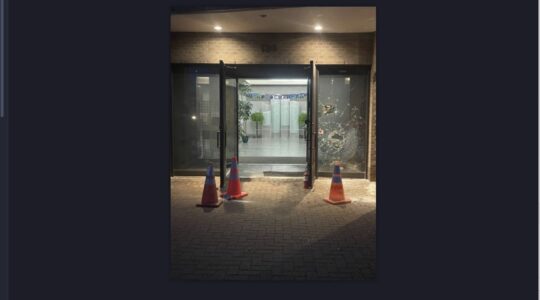WASHINGTON (JTA) — The U.S. House of Representatives approved a nonbinding resolution saying that anti-Zionism is antisemitism, with support from all but one Republican and a substantial minority of Democrats.
The resolution was introduced by the two Jewish Republicans in the House, Max Miller of Ohio and David Kustoff of Tennessee. It was notable for the number of Jewish Democrats who voted “present,” effectively abstaining, in part because they did not agree with the resolution’s contention that all forms of anti-Zionism were antisemitic.
The resolution passed 311 to 14, with 92 members voting “present,” among them eight of the 24 Jewish Democrats in the House. Democrats voting in favor numbered 95. Of the 14 who opposed, 13 were Democrats, most associated with the “Squad,” a small grouping of far-left progressives. The other was Kentucky Republican Thomas Massie, a libertarian who opposes nonbinding resolutions and has previously said antisemitism-related legislation restricts free speech.
Miller and Kustoff introduced the resolution to affirm U.S. support for Jews in the wake of the spike in antisemitic rhetoric and actions spurred by the Israel-Hamas war, which began when Hamas attacked Israel on Oct. 7.
“Whereas, since the massacre of innocent Israelis by Hamas, an Iran-backed terrorist organization, on October 7, 2023, antisemitic incidents of harassment, vandalism, and assault in the United States have spiked 388 percent over the same period last year, according to reports from the Anti-Defamation League’s (ADL) Center on Extremism,” the resolution says.
The resolution comes in the wake of efforts by Jewish members, including Republicans and Democrats, to present a united front in the wake of the war, and a week after all but two members voted to approve a resolution affirming Israel’s right to exist. It also comes as Israel faces increasing criticism, including from members of Congress, over its handling of its war in Gaza.
The debate Monday on the House floor soon turned to the resolved section of the Miller-Kustoff resolution, and its determination that the House “clearly and firmly states that anti-Zionism is antisemitism.”
Rep. Jerry Nadler of New York, the longest-serving Jew in the House, and a leader in advancing past denunciations of antisemitism, delivered a speech delineating instances in which anti-Zionism does not constitute antisemitism.
“The resolution suggests that all anti-Zionism is antisemitism,” said Nadler, who attended an Orthodox day school growing up. “That is either intellectually disingenuous or just factually wrong. And it unfairly implicates many of my Orthodox former constituents in Brooklyn, many of whose families rose from the ashes of the Holocaust.
“While most anti-Zionism is indeed antisemitic, the authors, if they were at all familiar with Jewish history and culture, should know about Jewish anti-Zionism that was, and is, expressly NOT antisemitic,” Nadler said. “This resolution ignores the fact that even today, certain orthodox Hasidic Jewish communities — the Satmars in New York and others — as well as adherents of the pre-state Jewish labor movement have held views that are at odds with the modern Zionist conception.”
Nadler and his Jewish colleagues, Jamie Raskin of Maryland and Dan Goldman of New York, this week introduced a separate resolution condemning antisemitism, tying it to the Biden administration’s antisemitism strategy, which the resolution approved on Tuesday does not mention.
The trio also were behind a letter in October supporting the Biden administration for its backing for Israel in its war with Hamas; all 24 Jewish Democrats signed onto that letter, but some have since broken away, calling on Biden to press for a ceasefire.
Kustoff in his floor speech linked anti-Israel and antisemitic biases, alluding to Rep. Rashida Tlaib, a Michigan Democrat who has used the phrase “From the river to the sea, Palestine will be free,” which some Jewish groups see as antisemitic.
“We have seen an explosion, an absolute explosion, of antisemitic incidents, attacks, and harassment, in Israel, here in our own nation, and across the world,” Kustoff said.
“More Jews were murdered on October 7th than on any other single day since the Holocaust. Let that sink in,” Kustoff said. “We have even seen members of this very body repeat blatantly antisemitic rhetoric and spread lies about Israel and her right to exist.”
Nadler said Republicans were playing politics with the resolution. “I cannot help but note that, although this resolution strongly condemns and denounces antisemitism, its authors carefully avoided mentioning any of the obvious instances of antisemitism coming from their own leaders,” Nadler said, listing a number of instances in which Donald Trump, the former president and likely 2024 presidential nominee, has been accused of antisemitism.
JTA has documented Jewish history in real-time for over a century. Keep our journalism strong by joining us in supporting independent, award-winning reporting.






